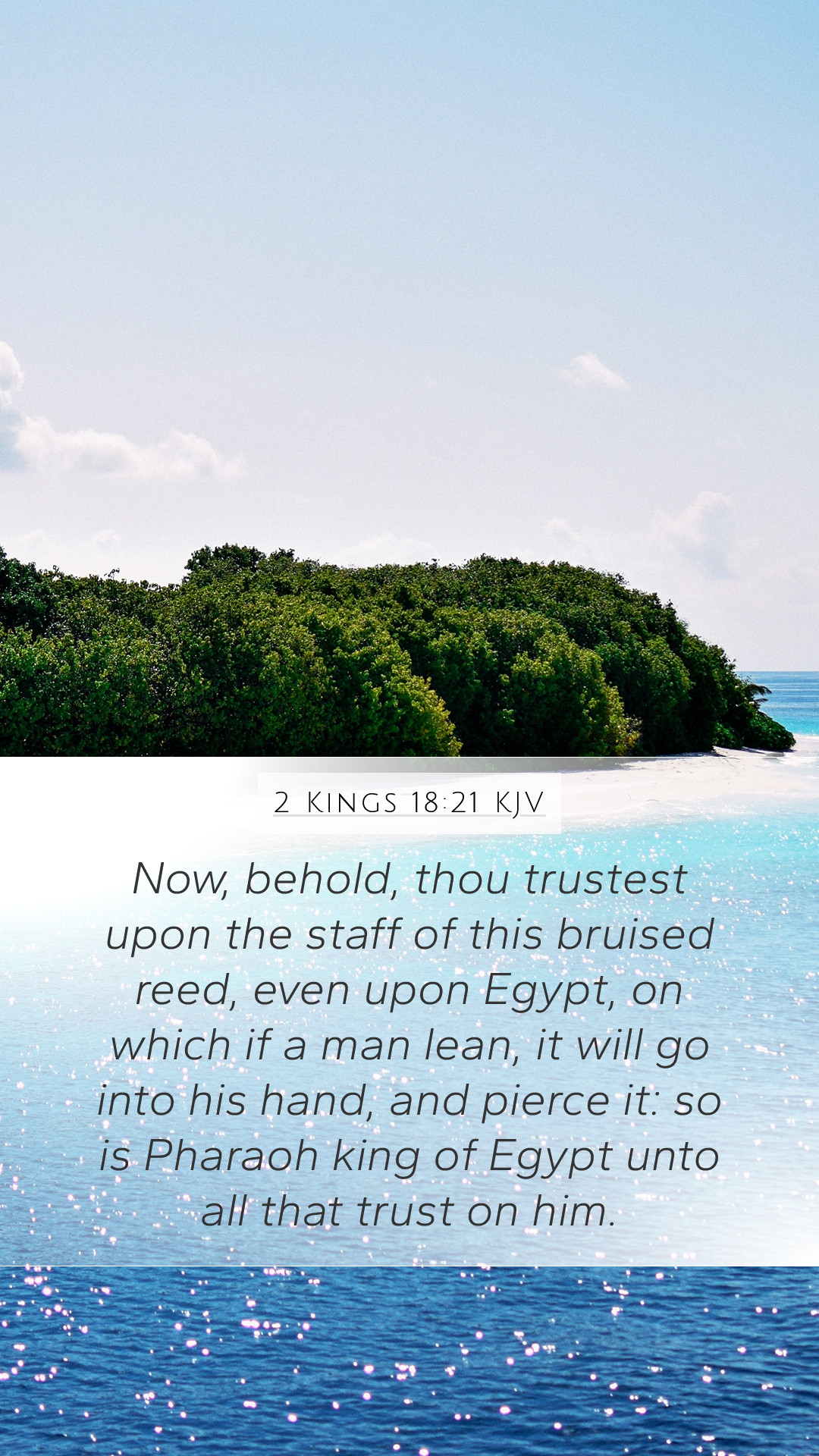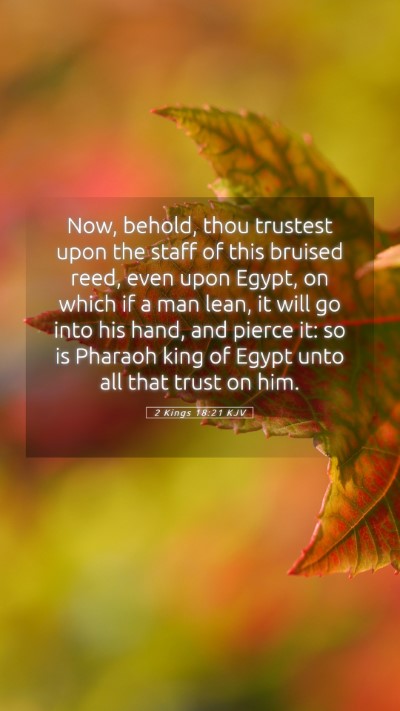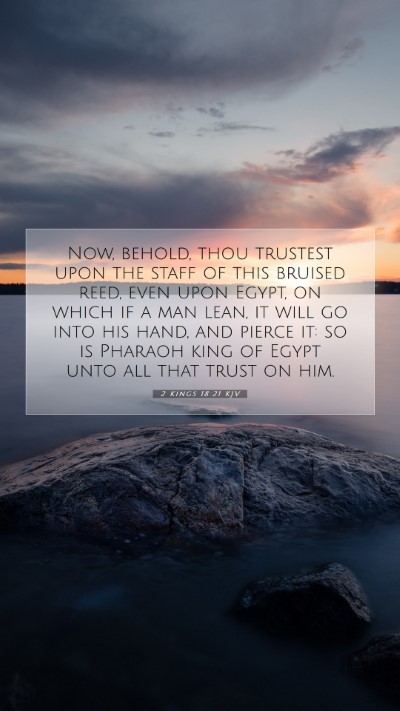Understanding 2 Kings 18:21: A Biblical Exegesis
2 Kings 18:21 states: “Now, behold, thou dost trust upon the staff of this bruised reed, even upon Egypt, on which if a man lean, it will go into his hand, and pierce it: so is Pharaoh king of Egypt to all that trust on him.” This verse, set within the context of King Hezekiah's reign in Judah and is part of a discourse on the futility of trusting in Egypt for military support against Assyria, highlights important themes about trust, reliance, and divine faithfulness.
Context and Overview
This passage is significant as it reflects the historical struggle between the Kingdom of Judah and the formidable Assyrian Empire. In moments of despair, Hezekiah considered turning to Egypt for assistance, which is where the prophet Isaiah intervenes, warning against reliance on an unstable ally.
Verse Meaning and Insights
The metaphor of Egypt as a “bruised reed” signifies its fragility and inability to provide the needed support. The imagery of a reed that can easily pierce the hand of someone relying on it underscores both the vulnerability of alliances and the danger of misplaced trust.
Commentary Insights
Matthew Henry's Commentary
Henry explains that the metaphor illustrates that Egypt, despite its outward power, is fundamentally weak and cannot be relied upon for support. He emphasizes the folly of depending on human strength rather than trusting in God’s promises. In essence, Henry urges believers to place their confidence in God, who is steadfast and reliable, contrary to the capriciousness of earthly allies.
Albert Barnes' Notes
Barnes elaborates on the symbol of the "bruised reed," noting that Egypt’s past military reputation was deceiving; it had become a mere shadow of its former glory. He highlights the repeated warnings from prophets against depending on foreign powers when God’s protection is available. Barnes presents this verse as a call to faithfulness to God in times of crisis, reinforcing the message that reliance on the Almighty is where true security lies.
Adam Clarke's Commentary
Clarke offers a deeper analysis of the historical context, identifying that the Egyptians had themselves suffered under the weight of their political challenges. He emphasizes that the metaphor of a "reed" not only pertains to Egypt's instability but also reflects the broader theme of faith amongst nations. Clarke calls attention to the fact that those who look upon the “bruised reed” must evaluate their own faith in God and not be distracted by the allure of earthly powers.
Applications for Believers
This verse holds valuable lessons for contemporary believers. The principle of relying on God rather than human institutions extends beyond ancient geopolitical contexts to modern faith. Here are some practical applications:
- Trust in God's Power: Like Hezekiah, modern believers are called to trust in the sovereignty and power of God over their lives and circumstances.
- Avoiding Misplaced Trust: The verse challenges individuals to scrutinize where they place their trust and to recognize the potential pitfalls in relying on worldly systems.
- Strength in Weakness: Recognizing that perceived strengths can often be weaknesses allows believers to find strength in their relationship with God during moments of vulnerability.
Cross References
Several other Biblical passages complement the message found in 2 Kings 18:21:
- Isaiah 30:1-5 - A warning against relying on Egypt for help.
- Proverbs 3:5-6 - An encouragement to trust in the Lord with all one's heart.
- Psalms 118:8-9 - A reminder that it is better to trust in the Lord than in man or princes.
Conclusion
2 Kings 18:21 serves as a poignant reminder of the futility of misplaced trust. As believers seek Bible verse meanings, Bible verse interpretations, and Bible study insights, this verse beckons a deeper reflection on where their reliance ultimately resides. In light of the insights from various public domain commentaries, individuals are encouraged to ground their faith firmly in God, recognizing that true support can only be found in Him.


